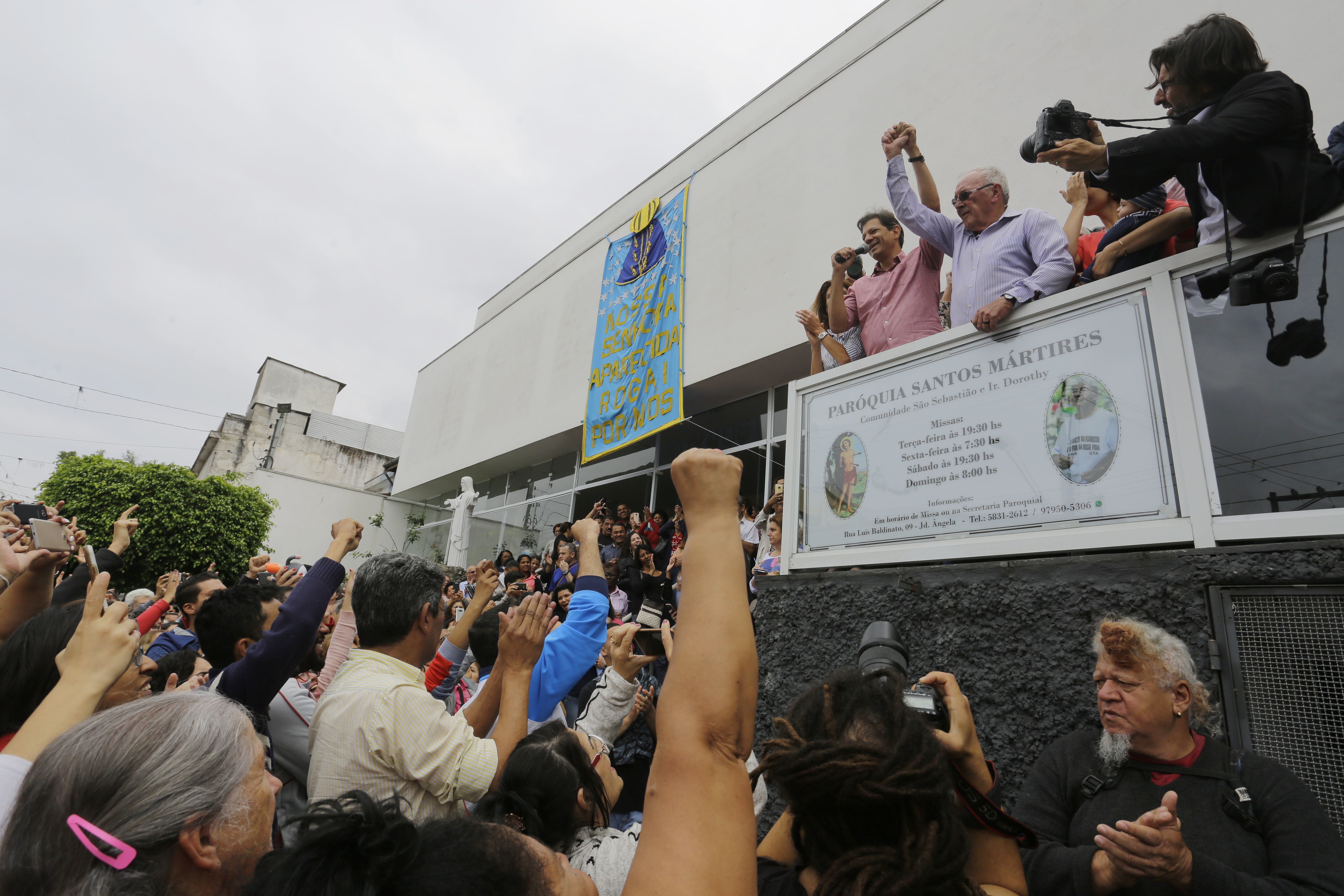Saudi conspiracies, fake news, bogus fact-checkers
Days after the reported murder of Washington Post contributor Jamal Khashoggi at the Saudi Consulate in Istanbul, misinformation has ballooned.
Saudi media outlets reported a conspiracy theory that Khashoggi’s fiancée is fake in an apparent effort to discredit Turkish and American intelligence. Reuters fell for a fake news story about the firing of a Saudi general consul. Some accounts are promoting a nonsensical video from a guy who wears a strainer on his head. And the Saudi government itself has threatened anyone who spreads “fake news” online with lengthy prison terms and heavy fines.
But perhaps the most illuminating bit of misinformation about the situation was a bogus Saudi fact-checking account.
Called Middle East Guardians, the fake outlet — whose Twitter account had only existed since September — built on prior media reports and published a photo that it claimed had been altered to add in Khashoggi’s Turkish fiancée, Hatice Cengiz, after the fact. BuzzFeed News reported that, since Cengiz told the media she waited outside the Saudi Consulate for hours and Khashoggi never returned, she’s become a target for people claiming the whole incident is a smokescreen to make Saudi Arabia look bad.
RELATED ARTICLE: When fact-checkers are the subjects of misinformation
A photo forensics expert analyzed Middle East Guardians’ work and concluded it was bogus and Twitter later suspended the account. Aside from the elements of classic, breaking news-related misinformation, the entire debacle is a good example of how misinformers are increasingly posing as fact-checkers to dupe online audiences.
A few weeks ago, Laurens Lauer, a research assistant at the University of Duisburg-Essen in Germany, sent an email to the IFCN mailing list asking for examples of bogus fact-checking sites. And he got some interesting responses.
First, there are satirical fact-checking sites, such as one from infamous American hoaxer Christopher Blair called No Fake News Online. That site was the outgrowth of a similar one called NFNO and takes aim at Snopes as part of an ongoing feud between the two outlets.
Then there are attempts to undermine legitimate fact-checking sites. In Sweden, a conspiracy theorist created an imposter version of Faktiskt two weeks before the real one launched. The copycat, which posted critiques of Faktiskt’s work, even went as far as to duplicate the logo and copy language from genuine press releases.
Third — and perhaps most common — are partisan attempts to co-opt the term “fact-checking” to prove a point. One example is the pseudo-news site The California Republican, run by the campaign committee to elect U.S. Rep. Devin Nunes (R-California), which published a “fact check” of an opinion article opposing Nunes. Similar efforts can be found in countries like Croatia, Italy and Iran.
Finally, there are more malicious fake fact-checkers. In 2017, Poynter reported on a Turkish “fact-checking” site that published articles denying the Armenian genocide.

This is how we do it
- In Brazil, Agência Lupa worked with researchers at two universities to track misinformation in public WhatsApp groups ahead of this month’s election. Here’s what they found — and why they published an op-ed in The New York Times.
- In an analysis of its Décodex database, Les Décodeurs found that the Facebook engagement of misinforming websites is declining.
- Last week, more than 60 fact-checkers from 38 organizations in 17 countries convened in Buenos Aires to share best practices at Latam Chequea.
This is bad
- The New York Times reported that Myanmar military officials created fake Facebook accounts and pages to target the Rohingya Muslim minority with misinformation and incite genocide.
- The Guardian reported that Brazil is battling a “tsunami” of misinformation during this month’s presidential election, and that Facebook has even removed some fake pages and accounts. Fact-checking outlet Aos Fatos quantified that and found that misinformation was shared at least 1.17 million times on Facebook during the first weekend of voting.
- The Bangladesh Parliament approved a bill that could imprison people for spreading “propaganda” about the 1971 war in which the country won independence from Pakistan. It also bans the posting of “aggressive and frightening” content, and The Economist reported that journalists are concerned.

This is fun
- There’s officially a play about fact-checking on Broadway. But Bill Adair wrote that it could rekindle confusion over how editorial fact-checking differs from political fact-checking.
- “The Viral Story About A Competitive Barefoot Runner Demanding People Sweep Up Acorns Is A Hoax” is an actual headline on buzzfeednews.com.
- The Annenberg Public Policy Center and iCivics are building a game that teaches students how to spot misinformation.
A closer look
- WhatsApp is trying to address misinformation on the platform by traveling around India and performing skits — but hopes to sign people onto the service while doing so, too.
- During Brazil’s first round of voting in the presidential election, hoaxes about voter fraud were rampant on social media — and the government body in charge of elections was slow to act.
- The Wall Street Journal profiled an American army veteran who has made it his personal mission to get Facebook to close fake accounts targeting other veterans.

If you read one more thing
The Economist published an obituary for Alan Abel, a famous American hoaxer who regularly duped the media.
9 quick fact-checking links
- Facebook is banning misinformation about voting requirements ahead of next month’s midterm elections in the United States, Reuters reported.
- According to a new study, college students don’t feel great about their ability to discern real from fake news online. Here’s a great take from Mike Caulfield on what the study reveals about how adults frame media literacy.
- Someone is posting screenshots of made-up stories from Dawn, a popular English-language newspaper in Pakistan.
- BuzzFeed News reported that a Toronto newspaper columnist spread a false claim that asylum-seekers were slaughtering goats in the bathrooms of a hotel that has been plagued by negative — and often fake — reviews from Islamophobes.
- New hurricane, same viral hoaxes.
- U.S. Rep. Dave Brat (R-Virginia) has been claiming that The Washington Post Fact Checker gave four Pinocchios to an ad from one of his opponents. But it didn’t.
- PolitiFact retracted a fact check about U.S. Sen. Claire McCaskill (D-Missouri) after it “received new evidence.” It previously debunked a claim that McCaskill said normal people can afford private planes — but it's actually half true.
- Twitter released an enormous dataset with content that the Russian Internet Research Agency used to influence the 2016 U.S. election.
- There are already photoshopped images about the Nigerian election.
Until next week,







